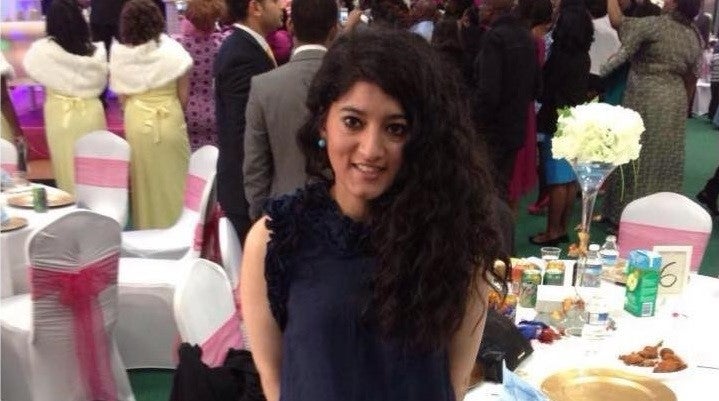
Justice secretary Dominic Raab has vowed to hand judges power to compel serious offenders to face their victims while being sentenced for their crimes, after the family of murdered law graduate Zara Aleena hit out at the current rules as “unjust”.
Jordan McSweeney was jailed for life with a minimum term of 38 years this week after “prowling the streets of Ilford looking for women to attack”, before sexually assaulting and murdering the 35-year-old as she walked home from a night out.
But the prolific offender, a 29-year-old from Dagenham, refused to come up from the cells at the Old Bailey to be sentenced by Ms Justice Cheema-Grubb and face Aleena’s grieving family members – with the court told he “didn’t want to relive the night”.
This meant that her relatives could not address McSweeney directly as they spoke in court about how her death has impacted them, prompting the judge to condemn McSweeney as having “no spine whatsoever”.
Aleena’s aunt, Farah Naz, told the court in her impact statement: “Zara was murdered in 20 minutes, she lost everything. We lost her and more. When a human is murdered, a family is murdered.”
“Zara’s teenage cousins are afraid of the world, afraid of strangers and have experienced panic for the first time. Every day it is like pushing a rock the size of a planet,” she said, adding: “We are on our knees shuffling through a horror movie.”
Speaking through stifled tears outside the court, Ms Naz told reporters that her family had “some retribution but no peace”, and has since criticised the rules which allowed her niece’s killer to remain in his cell as “unjust”.
“To allow him not to have to relive it seems so unjust. It seems very biased towards his rights, and absolutely no concern for ours,” the 55-year-old psychotherapist told The Sunday Times.
Asked separately by the paper about the fact that McSweeney was able to remain in his cell, the justice secretary said: “Those convicted of serious offences should face the judge and their victims at sentencing. That is part of justice being seen to be done.”
Mr Raab plegded to legislate “as soon as parliamentary time allows” to ensure judges have the power to compel offenders to come to court.
Ms Naz said that she relives her niece’s death “every single day”, adding: “We barely sleep. I can’t think of a night where I’ve had a full night’s sleep since Zara was murdered ... We are traumatised.”

“It seems very strange that a defendant shouldn’t hear all the proceedings and be faced with what he did. And now he never will be,” she added.
It is not uncommon for murderers to refuse to leave their cell during sentencing, as evidenced by several infamous cases such as those of Koci Selamaj after killing schoolteacher Sabina Nessa, six-year-old Arthur Labanjo-Hughes’ stepmother Emma Tustin, and Manchester Arena bombing plotter Hashem Abedi.
After Selamaj’s sentencing eight months ago, former Crown Prosecution Service chief Lord Ken MacDonald warned that the government should “urgently” look at changing the law to prevent killers from “insulting” their victims’ families in such a way, which he told the BBC was “really damaging to justice”.
But the leading lawyer said that defendants “might be disruptive” if forced to attend, and warned that judges would not want people “dragged kicking and screaming”, suggesting instead that they could be incentivised to attend by either granting or withholding certain privileges during the first year of their sentence.
Labour’s shadow justice secretary, Steve Reed, also called for such a move in the wake of Nessa’s murder, telling The Sun: “Judges need the power to force offenders to literally face justice in court, instead of refusing to attend court and causing more unimaginable grief to victims.”
A government source was cited by the paper at the time, in April, as saying that the justice secretary – a role held by Mr Raab both then and now – was “looking at this very carefully”.







